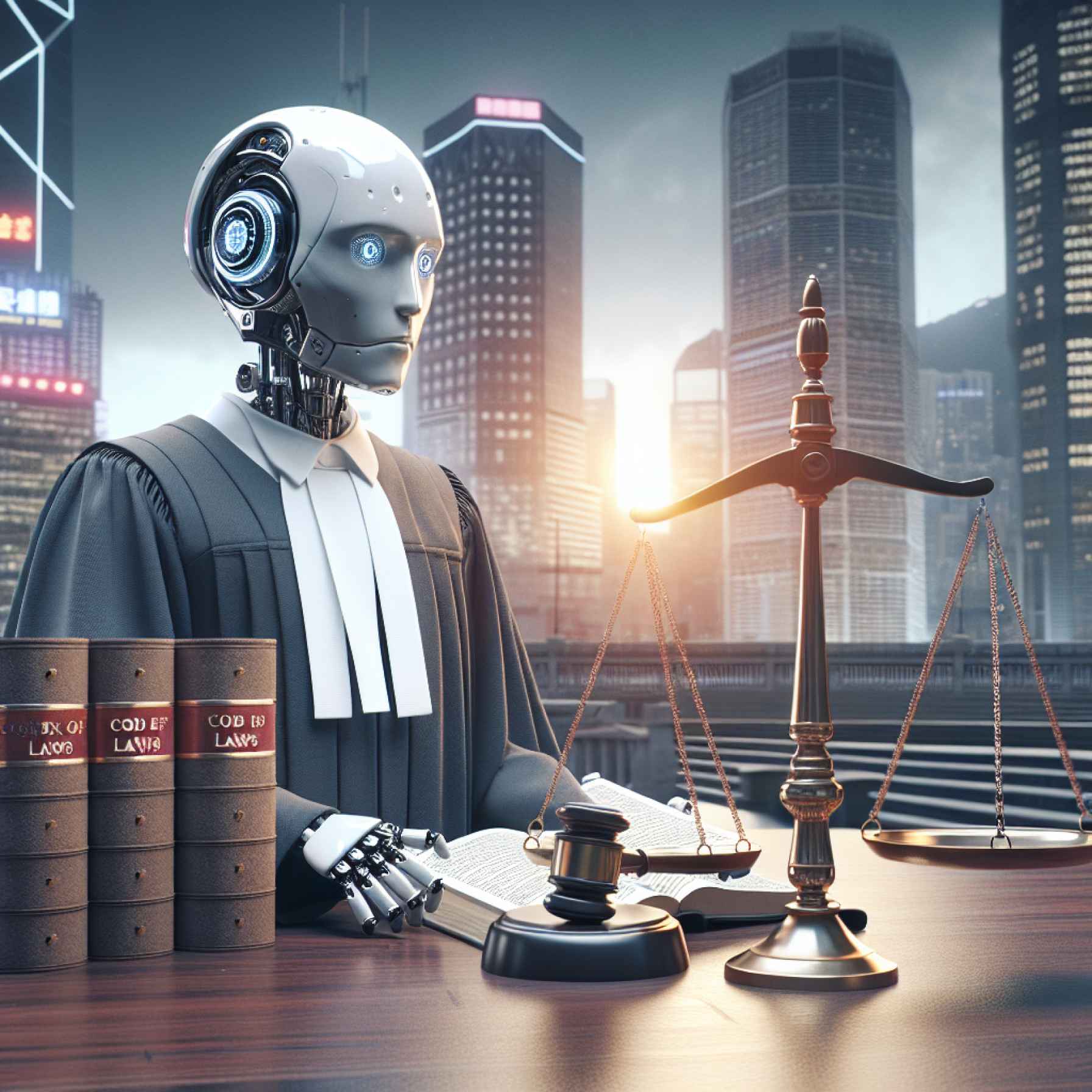- AI drives significant changes in Hong Kong’s education and business sectors, serving as a study partner and aiding in legal work.
- AI offers potential benefits in the judiciary by eliminating human bias and fatigue, enabling objective legal rulings based solely on evidence.
- The integration of AI in the judiciary can free human judges from routine tasks, allowing a focus on complex human elements AI cannot address.
- Challenges remain regarding AI’s ability to understand empathy and societal nuances, crucial to the human aspect of justice.
- Hong Kong could lead in this technological partnership, combining human wisdom with AI precision to enhance the justice system.
- The evolution of AI in the judiciary raises questions about the balance between objectivity and the human touch in delivering justice.
A flood of digital advancement sweeps across Hong Kong, where artificial intelligence (AI) is not merely an idle conversation but a vibrant reality woven into the fabric of education and business. Students find in AI a tireless study partner, while legal firms cautiously employ AI to draft meticulous legal briefs and analyze cases with dispassionate precision. Yet, the boldest leap forward beckons the judiciary—picture judges devoid of human prejudice, bias, or fatigue, presiding with relentless consistency.
AI’s evolution is startling. Once limited to language translation and playing chess, AI now stands shoulder to shoulder with professionals, probing vast databases, and offering insights that shape coursework, legal arguments, and even health diagnoses. Imagine a future where verdicts are derived purely from evidence and legal principles, free from the unconscious biases and subjective experiences that color human judgment.
A judiciary built on AI could herald an era of impeccably objective rulings. Without familial ties, aspirations, or a predisposition to societal pressures, AI judges promise a clean slate. They would neither flinch under the weight of political implications nor bend to societal whims. AI doesn’t seek promotions or accolades, and devoid of emotion, it executes justice with an even hand.
Hong Kong stands at the crossroads of an innovative judicial partnership, balancing humanity with machine precision. Initiating AI as an adjunct to human judges might be the first prudent step, utilizing it to analyze precedent and draft objective summaries. This technological harmony could relieve human judges of tedium, leaving them to focus on nuanced human elements AI cannot address.
In a world where human judges battle with cognitive dissonance and emotional strain, AI judges might just be the rational heroes of tomorrow’s courtroom. Imagine systems that never tire, handling the complex nuances of legal doctrine with relentless accuracy. Yet, even as AI becomes an integral cog in the judicial machine, it raises questions about empathy, societal understanding, and adaptability—qualities inherently human.
In Hong Kong, the stage is set for an audacious judicial evolution. As technology marches forward, could AI judges one day serve as bastions of faultless justice, heralding a new age in the legal landscape? The time may soon come to decide whether the unwavering objectivity of AI can coexist and complement the nuanced wisdom of human judges in the relentless pursuit of justice.
Beneath this tension lies a profound consideration: Can AI truly understand the heartbeat of justice, or will it forever remain an impartial spectator? As we ponder these questions, one thing becomes clear—technology, if harnessed wisely, could indeed become a powerful ally in the quest for a fairer, more efficient judicial system.
The Unstoppable Rise of AI in the Judicial System: A Game-Changer or a Threat?
AI’s Transformation in Various Sectors
As AI continues to revolutionize industries globally, Hong Kong stands as a prime example where digital advancement is not just a trend but a tangible reality. In education, AI serves as an indispensable tool, offering students personalized learning experiences and aiding educators with data-driven insights. The legal sector, too, is experiencing a profound transformation, with AI assisting in drafting legal documents and analyzing complex cases. However, the most intriguing prospect lies in its potential integration into the judiciary system—where AI judges could redefine the future of law.
The Emergence of AI in the Judiciary
Incorporating AI in the judicial system offers possibilities beyond imagination. Picture a courtroom with AI judges delivering rulings that are entirely evidence-based, devoid of human bias or error. The potential for objective rulings is striking, as AI could eliminate influences from personal biases or external pressures.
Pros and Cons Overview
Pros:
– Unbiased Judgments: AI can make decisions based solely on facts and legal principles, reducing the chances of biased rulings.
– Consistency: AI ensures uniformity in judgments, potentially increasing trust in the legal system.
– Efficiency: AI can process vast amounts of data quickly, speeding up legal procedures and reducing court backlogs.
Cons:
– Lack of Empathy: AI cannot understand human emotions or the nuances of individual cases, potentially leading to rigid outcomes.
– Technical Limitations: The risk of errors or biases being introduced through programming or flawed datasets.
– Ethical Considerations: Raises important questions about accountability and the role of human judgment in law.
Real-World Use Cases and Industry Trends
Experts envision a future where AI complements rather than replaces human judges. Some suggest initiating AI as a supportive tool—analyzing precedents, flagging inconsistencies, and drafting objective case summaries. This symbiotic relationship could enhance human capabilities while maintaining the humanity essential in delivering justice.
Life Hacks for Leveraging AI in Legal Practices
1. Utilize AI for Research: AI tools can dig through legal databases much faster than humans, pinpointing relevant case laws and statutes.
2. Streamline Document Review: Implement AI software for efficient document review, identifying key areas and reducing workload.
3. Continuing Education: Legal professionals should stay informed about AI advancements to use these tools effectively in their practice.
Controversies and Limitations
The integration of AI in the judiciary is not without controversy. The core question remains whether AI can capture the essence of justice, which often requires understanding human behavior and context. Furthermore, concerns about transparency, data privacy, and security need addressing before widespread adoption.
Predictions and Insights
Looking ahead, AI is poised to become an invaluable asset in the legal field. As technology advances, its role will likely grow, but human oversight will remain crucial. Balancing AI’s efficiency with the empathy and ethical considerations inherent to human judgment will be key.
Actionable Recommendations
– Stay Informed: Legal professionals should educate themselves on AI technologies and their implications.
– Evaluate Tools Carefully: Choose AI tools that enhance legal practice without compromising ethical standards.
– Advocate for Balanced Integration: Support initiatives that combine AI’s strengths with the invaluable insights provided by human judgment.
For more on innovations in AI and its global impacts, visit Forbes and BBC.
As AI continues to advance, its role in the judiciary will likely expand, opening new avenues for delivering justice. While AI’s objective nature is its strength, the human element remains indispensable in ensuring fairness and empathy in legal proceedings. The journey towards an AI-integrated legal system might be complex, but with careful planning and ethical oversight, it promises a more efficient and impartial future in law.






